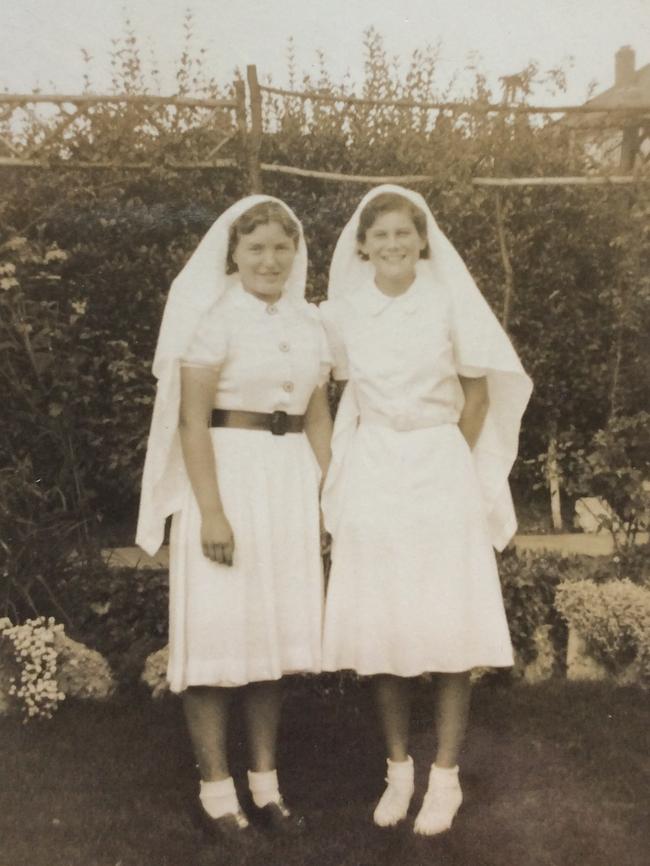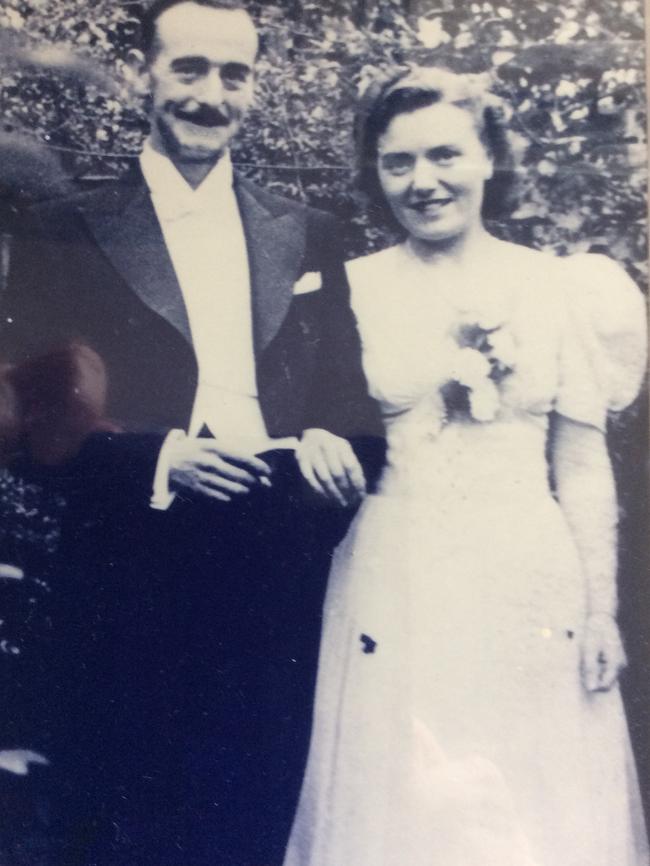My mother, the force to be reckoned with
MUM didn’t suffer fools or rebels, and I was both in my youth, writes Margaret Wenham. But this Mother’s Day I’ll be appreciating her and the other stoic, tough-as-nails members of her generation.
Rendezview
Don't miss out on the headlines from Rendezview. Followed categories will be added to My News.
LYING doggo on the couch, I’d flattened my fringe — normally arched either side of a centre part, which was high school high fashion in 1975 — trying to cover the huge egg on my forehead.
I was definitely not going to tell my mother!
But I’d overplayed it. My uncharacteristic silence aroused mum’s suspicions. She strode up, blocking my view of the tele.
“Is there anything you want to tell me?” she barked.
This surprise attack, combined with the emotion I’d been bottling up since a mate driving the speeding Morris 1100 I’d been in a couple of hours earlier had lost control and we’d skidded into a tree and flipped over, was enough to make me burst into tears and fess up.
I’d wagged school. A group of us had gone to Lake Manchester and, well, on the way home I’d almost gone through a windscreen.
Nurse Mum checked me over while simultaneously conducting a ruthless interrogation, wresting out of me the name of the hapless driver who was two years older.
She rang his parents. Their son, she informed them, was a disgrace. He’d “taken a minor out of school” and her next call was going to be to the police.
I groaned. This outcome was worse than expected. Never mind the bump on the head, this was social death.
But of course she didn’t call the police. She just wanted to put the wind up everyone while reinforcing what I’ve always known, that Mum’s a force to be reckoned with.
At least she was. She’s now 94 and her acuity is fast fading. But she’s still a force majeure when she doesn’t like something and we laughed on Sunday when a carer opened a door for her with a flourish saying, “This way your majesty”. (Iain, the miracle carer, has listened to many of our stories about Mum, including about her time at the old Kenmore Repatriation Hospital where the ageing war vets in residence used to call Sister Hetherington “Sar’nt Major” behind her back as she patrolled the wards and scolded malingerers.)

Mum is one of the rapidly diminishing cohort of the Lost and Silent Generations — those born in time to witness the horrors of World War I or, if born a little later, then to endure the Great Depression and then World War II. Oh, the things they faced and the loved ones they lost.
She was born in the early 1920s in London to George and Polly. Polly was sweet natured. George was ravaged — from being shot and gassed in France. Post-war he was a “commercial traveller” and, though this cushioned his family from the worst of the Depression, he hated his job and, seemingly, most things in life. By the time Mum was a teenager, she was Polly and her brother’s human shield, famously once threatening to hit George with a shoe if he didn’t stop being mean.
She trained in a London hospital during the war. There was no evacuation for the nurses on duty, they were committed to protecting their patients and so they did, moving them under their beds, lying with them as the bombs rained.
She fell for my father whose terminally ill mother she’d nursed. They married in 1947. When Dad, having loved the Aussies he’d served with during the war, announced he wanted to go to Australia, there was nothing for it but to go with him.

Swallowing her homesickness, Mum adroitly worked the system to get the family one of the first housing commission homes in Inala in Brisbane, while both of them had jobs, tag teaming with their sole bicycle to get to work and to look after the children (and soon there were three of us), until they built and ran the first post office and general store in the new satellite suburb.
I have to skip decades and lots that speak of her doughty disposition, but I can’t leave out how when the 1974 floods hit and the Kenmore Hospital was cut off, Mum clambered into an army duck to get there to live in, if necessary, for the duration. Or how she’d sometimes sabotage Dad’s Saturday night parties (he was an inveterate, happy socialiser) by suddenly appearing in nightie and curlers and announcing, “Right, I’ve got work tomorrow”.
Occasionally, she overreached. Once, when Dad was puzzling about having run out of beer, she declared she’d poured down the laundry sink about a half dozen long necks “otherwise they’d never have left”. Dad was cross about that.
Then, when her beloved husband’s health failed, how she became his No. 1 nurse and champion, and woe betide anyone whose professional standards did not match hers — like the matron at the Mater who received an excruciating, public dressing down on one memorable occasion.
There’s no sugar coating our relationship. Mum didn’t suffer fools or rebels gladly and I was definitely both in my youth. I regarded her as an interfering, bossy, pain in the arse. It made for combative times.
Now, older and wiser, I can see who she is and why, and admire her. We laugh at our past contretemps.
I know that with the loss of Mum’s generation a great void in our world will be created as they take with them their characters forged from the type of experiences which most of my generation and certainly those ensuing have no first-hand knowledge.
There’s nothing to be done for that sad inevitability. But this Sunday — Mother’s Day — we’ll have a special cup of tea toast as we enjoy our reminiscing, maybe including the day Dad’s chip-pan fire scorched the kitchen ceiling, which Dad repainted in record time, hissing at me as she stamped upstairs, home from work, “Don’t tell your mother!”
Margaret Wenham is a Courier-Mail columnist and editor.


